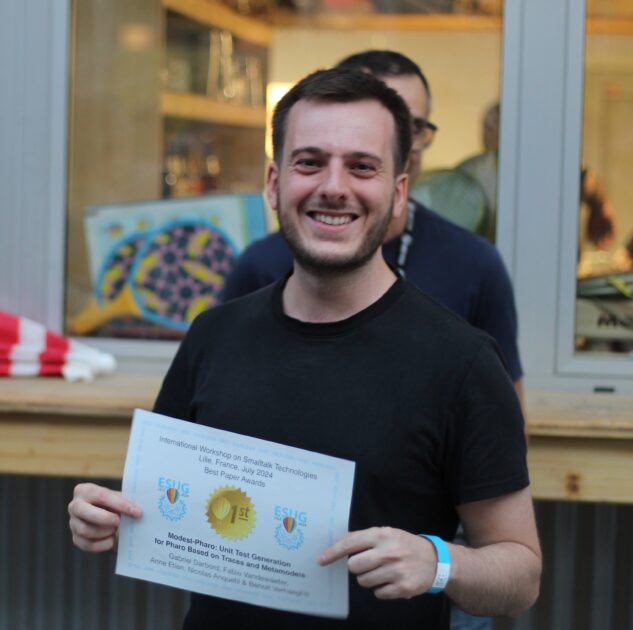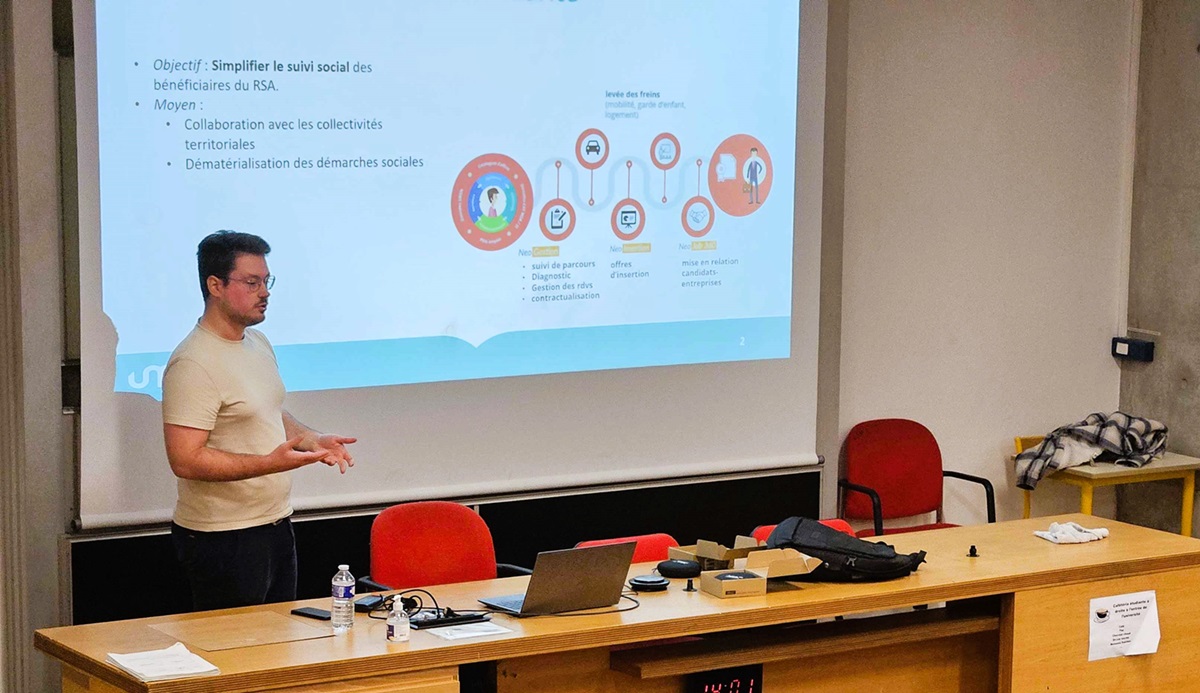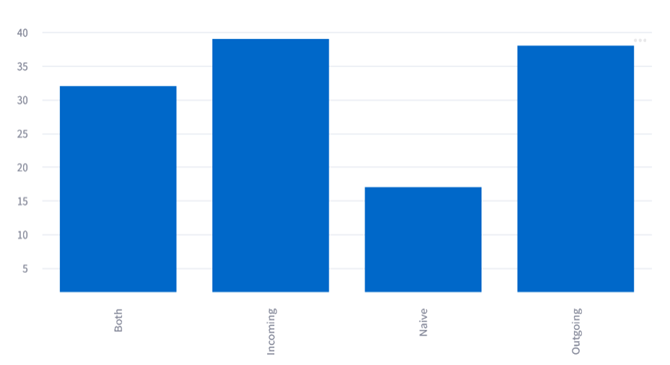Gabriel Darbord started his Ph.D. two years ago in the Evref team at Inria, a joint project team with Berger-Levrault, supervised by Anne Etien (Pr.) and Nicolas Anquetil (MCF). His thesis focuses on the area of test generation, an essential component in the software development lifecycle. His research work is in partnership between: University of Lille, Inria, CNRS, Centrale Lille, the research lab CRIStAL.
The research is particularly relevant as Berger-Levrault is currently undergoing a significant migration of its software systems. This migration requires rigorous testing to validate the new state of the applications, ensuring that they are free of regressions and continue to function correctly.
An innovative tool to generate unit tests for software applications

Gabriel presented his paper titled “Modest-Pharo: Unit Test Generation for Pharo Based on Traces and Metamodels” at the ESUG 2024 International Conference.
The Conference took place in Lille, France from July 8 to 11.
And he received the Best Paper Award for this work!
He presents Modest, an innovative tool designed to generate unit tests for software applications. The tool works by using captured application traces that contain serialized data such as method receivers, arguments, and return values. By analyzing these traces, Modest can reconstruct the execution context and generate corresponding tests. This process not only verifies that the application behaves as expected, but also helps prevent future bugs.
Following on from his previous article A Modest first step in Test Generation – BL Research (research-bl.com), the innovation behind Modest lies in its ability to reconstruct values as code, rather than simply deserializing them from strings. This approach aims to improve the readability and maintainability of the generated tests, which Berger-Levrault considers important criteria. Modest also aims to be language-agnostic, using metamodels and execution traces that are not tied to a specific programming language, but this is still ongoing research and has not yet been fully demonstrated. It is already being used to generate tests for Java, and the paper shows how it can be applied to Pharo by generating 188 unit tests for two Pharo applications. The robustness of these tests was validated using mutation coverage, a metric that measures the ability of a test suite to detect potential faults.
What’s next?
Looking ahead, Gabriel is excited to explore the full potential of Modest’s language-agnostic capabilities. One possible direction is to extend the tool to generate tests in TypeScript, in line with Berger-Levrault’s ongoing software migration efforts. This extension would further broaden the tool’s applicability, making it a valuable asset for a wider range of software systems and programming languages.





